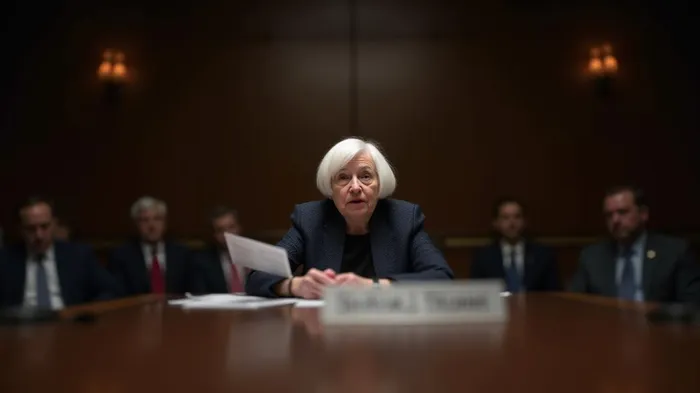U.S. Treasury Secretary Opposes CBDC, Citing Economic Weakness
U.S. Treasury Secretary Scott Bessent expressed his opposition to the introduction of a central bank digital currency (CBDC) during his testimony before the House Appropriations Committee’s Subcommittee on Financial Services and General Government. He stated that a CBDC would be a "sign of weakness" rather than a strength for the U.S. economy. Bessent emphasized that digital assets should remain within the private sector, suggesting that the current financial system, which includes U.S. Treasuries, already provides sufficient exposure to the U.S. dollar and benefits from its dominant role in global trade.
Bessent's remarks align with the views of many conservatives who have long opposed the establishment of a CBDC in the U.S. House Majority Whip Tom EmmerEMM--, for instance, has been a vocal critic of CBDCsYCBD--, citing concerns over financial privacy and sovereignty. Emmer's Anti-CBDC Surveillance State Act, which aims to prevent the creation of a CBDC, was recently passed out of committee with a significant vote. Rep. Chuck Edwards, a co-sponsor of Emmer’s bill, questioned Bessent about his stance on CBDCs, highlighting the concerns of his constituents regarding the security and privacy of such a currency.
Bessent's comments echo his previous testimony in January, where he stated that there is "no reason" for the U.S. to issue a digital dollar. His views are supported by an executive order signed by President Donald Trump shortly after his inauguration, which prohibits the establishment, issuance, circulation, and use of a CBDC within the U.S. Trump had previously warned that a CBDC could enable the government to "take your money," emphasizing the potential risks associated with such a currency.
While Trump's executive order has made the launch of a CBDC less urgent, a bill from Congress like Emmer’s could provide a more permanent solution. Nicholas Anthony, a policy analyst at the CatoCATO-- Institute, noted that the executive order is not permanent and could be changed with the next administration or in the event of an emergency. During his presidential campaign, Florida Governor Ron DeSantis also expressed opposition to CBDCs, warning that the technology could be used to limit purchases of certain consumer goods.
CBDCs are similar to stablecoins in that they are tokens pegged to the price of a fiat currency, such as the U.S. dollar. However, unlike stablecoins, CBDCs are maintained and controlled by the government rather than being issued by private companies on public blockchains. Over 100 nations worldwide are currently researching, developing, or piloting a CBDC, with only a few, such as Jamaica, the Bahamas, and Nigeria, having fully launched their own digital currencies. China and Russia continue with years-long pilot programs for their CBDCs.
When the Biden administration issued an executive order in 2022 directing the U.S. government to investigate the technical infrastructure needed for a CBDC, the issue was relatively pressing. However, according to Anthony, the current criticism and concerns surrounding CBDCs have put the issue "on the backburner in many ways." Despite this, the threat of a CBDC remains, and its potential impact on financial privacy and sovereignty continues to be a topic of debate among policymakers and the public. 
Quickly understand the history and background of various well-known coins
Latest Articles
Stay ahead of the market.
Get curated U.S. market news, insights and key dates delivered to your inbox.



Comments
No comments yet